Heralding the sexual revolution
I've always enjoyed D.H. Lawrence's poetry, but I've never been able to get into his novels. Then last week I found an old long-neglected copy of Lady Chatterley's Lover, and thought why not give it a go. Much to my surprise I thoroughly enjoyed it.
In many ways I guess it's one of Lawrence's more accessible books - much shorter than Women in love - and made famous of course by one of the most famous literary trials ever. Lawrence completed the novel in 1928, just two years before he died of consumption; and yet the novel manages to be wonderfully life-affirming even while the author was himself approaching his end. There was limited publication, an American edition was heavily edited, and then in 1960 came the obscenity trial R v Penguin Books. The decision of the jury, to whom the Penguin edition is dedicated, enabled the book to be published in unexpurgated form, and was, according to some people, responsible for ushering in the permissive society.
And yet I find it hard to believe that Lawrence would have entirely supported this. He was against the commercialisation of sex, the thought of sex as a commodity with no love behind it, or delight in the act itself. Set in 1928, at the midway point between the two world wars; the novel is about what it means to be human against the advance of materialism and technology. Lady Chatterley's husband severely injured in the war is unable to make love to his wife, and while his physical life is sterile, so too is his mental life, as he becomes increasingly involved with production at his local pit. Lawrence contrasts the sterile, materialistic existence of Chatterley and his miners with the fruitful, if more back-to-nature life, of Constance Chatterley and her lover.
As the novel progressed I did have some difficulty with Lawrence's rather odd take on politics. The thinking was woolly, to put it mildly, and there were some very strange attitudes towards class. But there are moments of great affection and beauty in the novel. To dismiss it as not a good novel (as has often been done) because of the occasionally clumsy writing of the sex scenes seems to me unfair. How many of us can honestly say that we are worth quoting when we are at our most vulnerable? The language shocks less now than it would have done in 1928, or even in 1960. But Lawrence was not necessarily setting out to shock. His point was the way in which language is used. He wanted to take words back to their original usage not their perversion as obscenities, by which both the words and their actions are demeaned.
There is much to admire here. Lawrence's affirmation of what it is to be human, in spite of the modern world's best efforts to undermine it, remains as relevant as ever. And his hatred of materialism seems more relevant in today's world than it probably was in 1928. It's not a perfect book, the balance is slightly out, with the first two-thirds reading much more strongly than the final third. And yet, there is something unexpectedly lovable about it; as fragile in its own way as the love between Lady Chatterley and Oliver Mellors, the gamekeeper.
In many ways I guess it's one of Lawrence's more accessible books - much shorter than Women in love - and made famous of course by one of the most famous literary trials ever. Lawrence completed the novel in 1928, just two years before he died of consumption; and yet the novel manages to be wonderfully life-affirming even while the author was himself approaching his end. There was limited publication, an American edition was heavily edited, and then in 1960 came the obscenity trial R v Penguin Books. The decision of the jury, to whom the Penguin edition is dedicated, enabled the book to be published in unexpurgated form, and was, according to some people, responsible for ushering in the permissive society.
And yet I find it hard to believe that Lawrence would have entirely supported this. He was against the commercialisation of sex, the thought of sex as a commodity with no love behind it, or delight in the act itself. Set in 1928, at the midway point between the two world wars; the novel is about what it means to be human against the advance of materialism and technology. Lady Chatterley's husband severely injured in the war is unable to make love to his wife, and while his physical life is sterile, so too is his mental life, as he becomes increasingly involved with production at his local pit. Lawrence contrasts the sterile, materialistic existence of Chatterley and his miners with the fruitful, if more back-to-nature life, of Constance Chatterley and her lover.
As the novel progressed I did have some difficulty with Lawrence's rather odd take on politics. The thinking was woolly, to put it mildly, and there were some very strange attitudes towards class. But there are moments of great affection and beauty in the novel. To dismiss it as not a good novel (as has often been done) because of the occasionally clumsy writing of the sex scenes seems to me unfair. How many of us can honestly say that we are worth quoting when we are at our most vulnerable? The language shocks less now than it would have done in 1928, or even in 1960. But Lawrence was not necessarily setting out to shock. His point was the way in which language is used. He wanted to take words back to their original usage not their perversion as obscenities, by which both the words and their actions are demeaned.
There is much to admire here. Lawrence's affirmation of what it is to be human, in spite of the modern world's best efforts to undermine it, remains as relevant as ever. And his hatred of materialism seems more relevant in today's world than it probably was in 1928. It's not a perfect book, the balance is slightly out, with the first two-thirds reading much more strongly than the final third. And yet, there is something unexpectedly lovable about it; as fragile in its own way as the love between Lady Chatterley and Oliver Mellors, the gamekeeper.

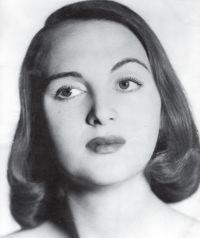
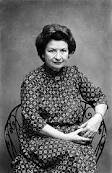
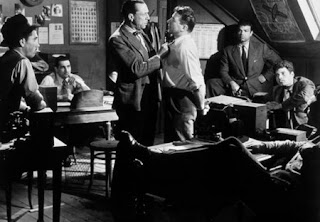


.jpeg)
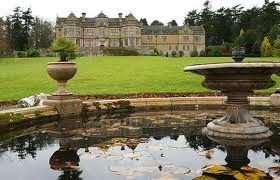

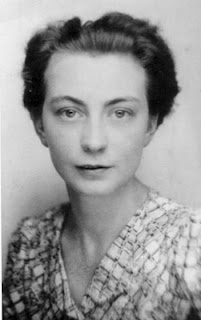
Comments